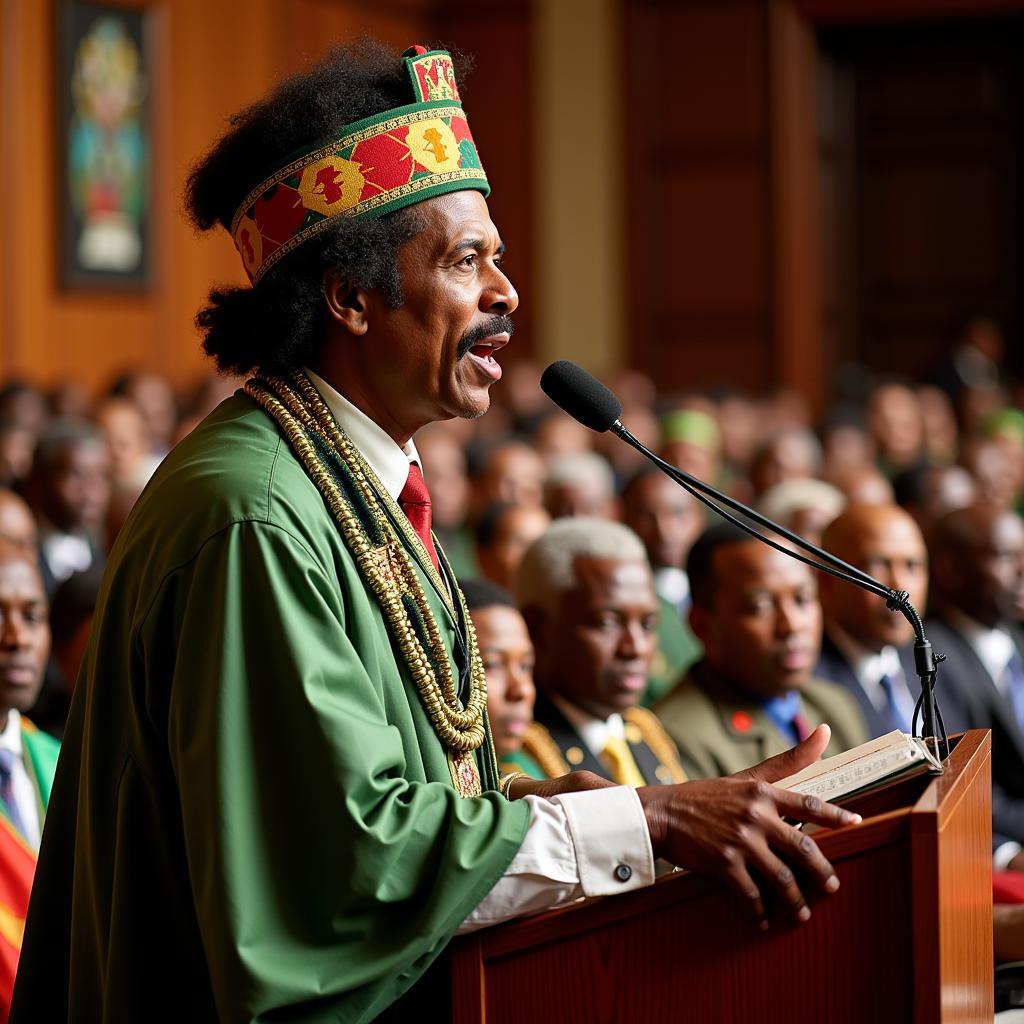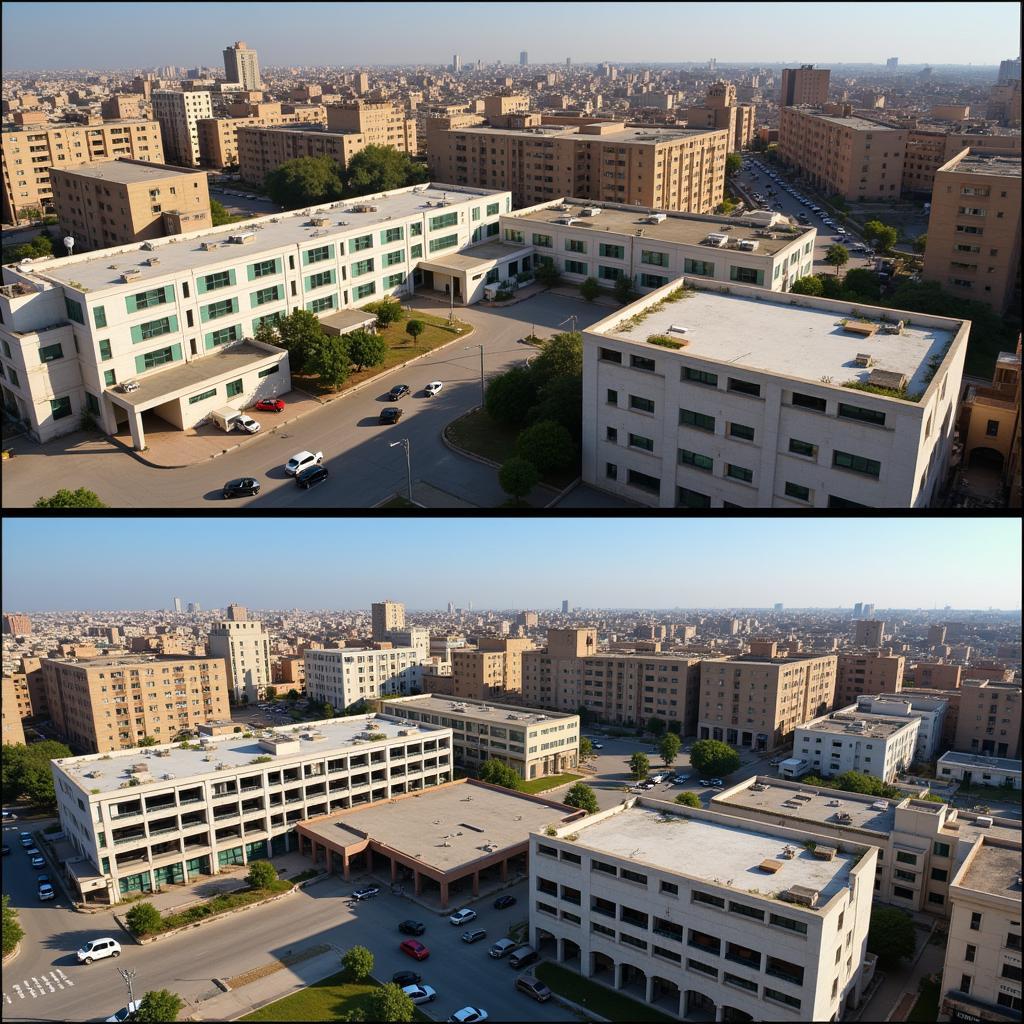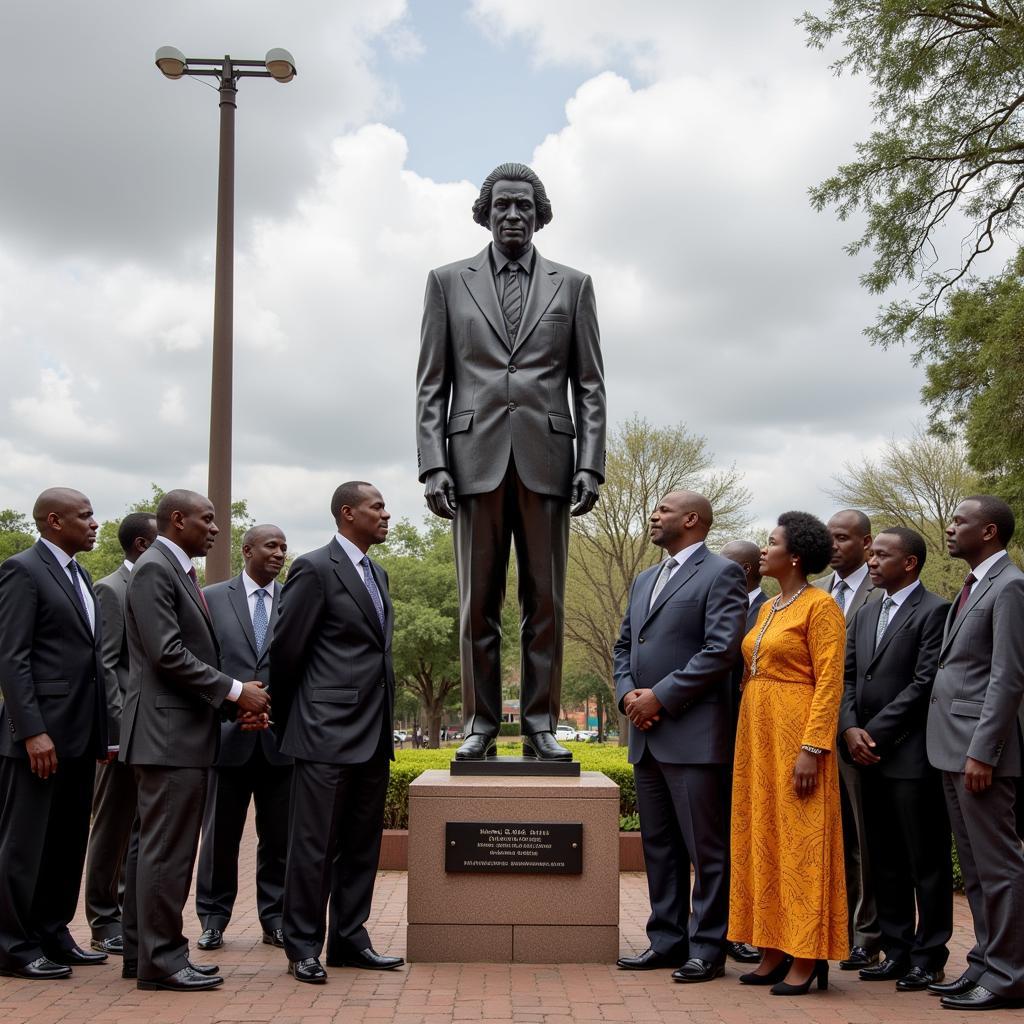African Empowerment: The Real Reason Why Gaddafi Was Killed?
The assassination of Muammar Gaddafi in 2011 sent shockwaves throughout the world, but perhaps nowhere was it felt more keenly than in Africa. While Western media often painted him as a ruthless dictator, many across the African continent saw him as a champion of pan-Africanism, a visionary leader who dared to challenge the established world order and fight for the continent’s economic independence. Was Gaddafi’s vision for a strong and united Africa, capable of controlling its own destiny, the real reason behind his downfall?
Gaddafi’s Vision: A Threat to the Global Status Quo?
Gaddafi, despite his controversial image, was instrumental in establishing the African Union (AU) and tirelessly advocated for a united Africa, economically and politically. He envisioned a single African currency, a unified military force, and a continent free from Western interference and exploitation. This vision, while inspiring to many, posed a direct threat to the established powers that have historically benefited from a divided and dependent Africa.
 Gaddafi addressing the African Union summit
Gaddafi addressing the African Union summit
Gaddafi’s ambitious plans, particularly his push for a gold-backed African dinar, threatened to disrupt the global financial system, challenging the dominance of the US dollar and the Euro. This move was seen by some analysts as a direct challenge to the Western-dominated financial order, potentially shifting power and resources away from traditional centers of influence.
The Economic Threat: Challenging Western Hegemony
One of Gaddafi’s most significant achievements was his success in using Libya’s oil wealth to improve the lives of ordinary Libyans. Under his leadership, Libya boasted the highest Human Development Index in Africa, with citizens enjoying free education, healthcare, and subsidized housing. Gaddafi also invested heavily in infrastructure projects across Africa, providing loans and grants to developing nations, often with more favorable terms than those offered by the World Bank or IMF.
 Libyan infrastructure development during Gaddafi's rule
Libyan infrastructure development during Gaddafi's rule
This economic independence, however, came at a cost. Gaddafi’s refusal to bow to Western economic pressure, coupled with his desire to nationalize Libyan oil resources and create a more equitable system for resource distribution within Africa, put him at odds with powerful Western interests.
Was Gaddafi’s Death About More Than Just Regime Change?
While the official narrative surrounding Gaddafi’s demise focuses on the Libyan uprising and NATO intervention, many believe the story is more complex. Gaddafi’s vision for a united and economically independent Africa threatened the status quo, challenging Western hegemony and the existing global power structure. His removal, some argue, was less about liberating the Libyan people and more about eliminating a leader who dared to challenge the established order.
“You cannot silence a continent that speaks with one voice,” Gaddafi once said. His words resonate deeply in the wake of his death, prompting questions about whether his assassination was a brutal lesson for those who dare to challenge the established global power dynamics.
 African leaders reflecting on Gaddafi's legacy
African leaders reflecting on Gaddafi's legacy
Conclusion: A Legacy of Empowerment and Controversy
Muammar Gaddafi’s legacy remains a subject of intense debate. Was he a ruthless dictator or a visionary leader? A champion of African empowerment or a brutal tyrant? While his methods were often controversial, his vision for a strong and independent Africa resonated with many. The question remains: would Africa be closer to achieving that vision today had Gaddafi not been killed?



